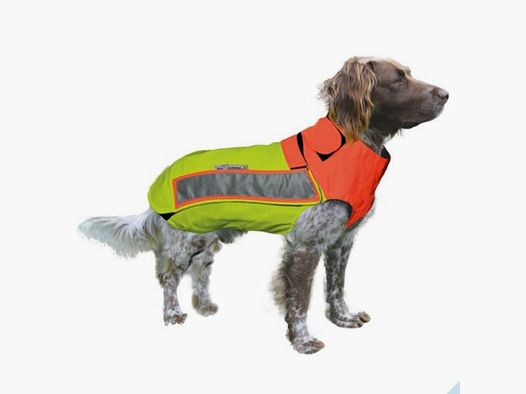Reasons and Causes for Barking
- Lack of socialization during puppyhood
- Overexcitement, compulsion to participate, high energy surplus
- Aggression possibly due to improper dog training
- Excitement and relaxation issues
- Sexual frustration or boredom
- Fear or insecurity
- Strong dominance behavior
- Protective instinct
- Strong herd instinct, territorial behavior
- Defense of resources (food, treats, toys)
- Negative memories
- Pain
- Great joy
Barking as Distance Increase
Most dogs that bark at other dogs want to create an increase in distance. This happens due to the restriction of the leash, which does not allow the four-legged friends to avoid certain encounters. In such cases, they often have no choice but to bark.
Territorial Aggression
Some dogs bark due to territorial aggression. They want to defend their territory and resources (food, toys, treats) and drive away unwanted intruders. This can manifest in barking, growling, and pulling on the leash.
How do I recognize why my dog barks?
To find out why your dog barks at other dogs, it is important to observe the behavior closely. Characteristics such as barking, growling, and pulling on the leash indicate territorial aggression, while anxiety or insecurity can be shown through body language signals like trembling, cowering, or tucking the tail. An experienced dog trainer can help you identify the behavior and find a solution for your dog's barking.
How can I stop the barking?
If you, as a dog owner, want to stop your dog's unwanted barking, there are some tips and tricks you can try:
- Socialization: Good socialization during puppyhood is essential. Here, dogs learn that it is completely normal to interact with other dogs.
- Training: A special training where your dog learns to be calm and relaxed near other dogs can be very helpful. You can also seek professional help in this regard.
- Behavior modification: Try to change your dog's behavior by giving him positive reinforcement when he meets other dogs without barking.
- Distraction: Try to distract your dog before he jumps at or barks at other dogs.
- Avoidance: Practice targeted avoidance training so that your dog learns to avoid other dogs.
- Medications: In severe cases, medication may be necessary. However, you should always consult a veterinarian in this case.
In summary, barking at other dogs is a common and normal part of communication among four-legged friends. However, as a dog owner, you can reduce or completely stop unwanted barking through socialization, training, and behavior modification.





























